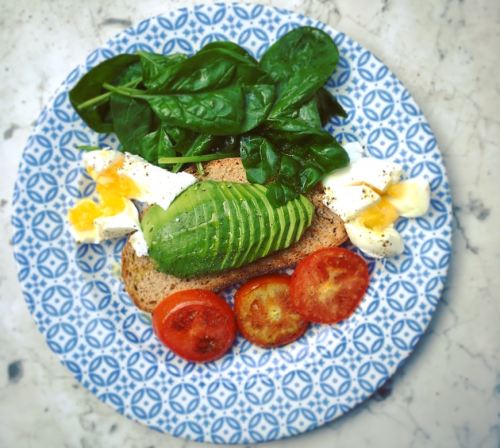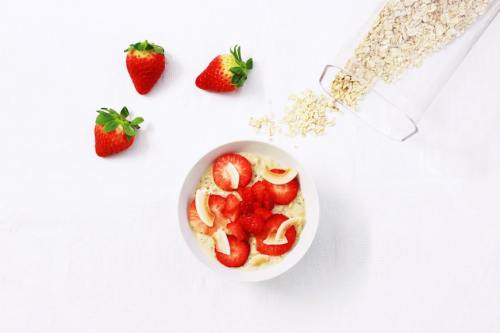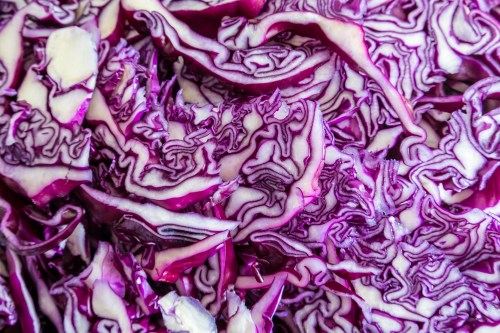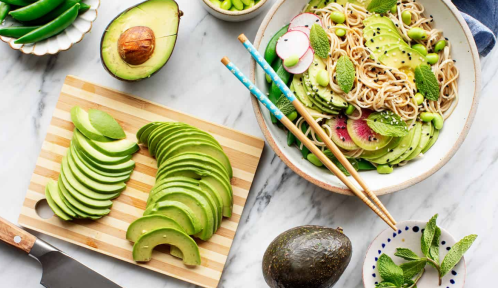Our editors independently select these products. Making a purchase through our links may earn Well+Good a commission
Take one peek at Karen Fischer’s Instagram and you can’t help but notice her enviable, glowing complexion. But what you don’t see is that the nutritionist and author has dealt with a lifetime of pretty intense skin struggles.
“I had eczema as a baby, and by the time I was a teenager, I had severe hand dermatitis,” she says. “I also had psoriasis in my twenties.” So when her daughter, Ayva, developed eczema as a baby due to “salicylate sensitivity”—a term that describes an intolerance towards the natural pesticide chemicals produced by plants for self-protection—Fischer knew exactly how to combat the condition through nutrition.
Within two months of starting Fischer’s diet and supplement plan, Ayva’s red, itchy skin splotches were completely gone. And Fischer has used that same strategy countless times in the 15 years since, treating patients suffering from eczema, rosacea, psoriasis, acne, and a multitude of other skin conditions. (It’s also the basis of her new book, The Eczema Detox: The Low-Chemical Diet for Eliminating Skin Inflammation.)
So what’s her secret? In Fischer’s experience, the key to healing an inflammatory skin condition like eczema lies in the liver. “Your liver is supposed to deactivate chemicals in your body, so if your liver’s not working at 100 percent, that’s when things like eczema can occur,” she explains. Alongside salicylate sensitivity, a myriad of other intolerances—including amine, glutamate (MSG), preservatives, sulfites, and nitrates—can throw of your liver out of whack and incite a gnarly case of the condition. External factors like chemical exposure might also provoke an inflammatory response, she says. Think pollution, perfume, household cleaners, or even your skincare products.
Once any or all of these factors has messed with your liver, Fischer says that detoxing is the name of the game. “It’s about avoiding [the eczema triggers] for three months and then testing them again. Keep challenging the body to get stronger,” she advises. Kind of like a beauty bootcamp, with a calm complexion as the end reward.

Ready to heal your eczema, once and for all? Scroll down for Fischer’s tips on which foods to carve out of your diet, and the healing ingredients to add to your plate.

What not to eat if you have eczema
Ever heard of the “Dirty Dozen?” The (somewhat) damning name for the most pesticide-laden produce items at the grocery store? Well, according to Fischer, eczema has its very own roster of no-gos, and those are the foods you want to avoid at all costs for your first three months of detoxing.
Steer clear of these 12 foods if you’re prone to eczema—all of them tend to be rich in salicylates, amines, MSG, nitrates, and other triggers:
- Grapes
- Oranges
- Kiwis
- Soy sauce
- Tomatoes
- Avocados: Gasp! Sorry, but they’re one of the leading sources of amines and salicylates.
- Broccoli
- Dried fruits
- Deli meats
- Eggs: 70-90% of people with eczema are allergic or sensitive to them
- Sugar
- Dairy products: 89% of eczema sufferers are allergic to dairy products

The best ingredients for soothing eczema
If your fridge is looking a little bare without eggs and avocados, don’t stress—just replace them with alkalizing, anti-inflammatory, omega-packed ingredients to protect and rejuvenate your skin. Fischer suggests doubling down on the foods below for the first three months of your detox. Then, you can slowly start reintroducing your favorites from the eczema “Dirty Dozen” list and seeing if they cause a flare-up. (Only if you want to, of course!).
- Flaxseed oil: “It literally moisturizes skin from the inside out,” says Fischer. “Eczema is dry skin. It drives people crazy, and it’s really part of the pain of eczema.” Just 1/2 teaspoon of flaxseed oil per day will give you your fill of omega-3s.
- Red cabbage: This ingredient gets its vibrant color from anthocyanin—a skin-protecting pigment that’s also found in purple cauliflower. To boot, it’s also highly alkalizing and naturally anti-inflammatory.
- Beets: When it comes to cultivating that otherworldly glow, nothing beats beets. They give your liver a hand in eliminating those pesky chemicals, and they’re even said to make your collagen supplements more effective.
- Saffron: Fischer calls this “The world’s most expensive spice—but you don’t need much of it for it to have benefits.” She advises adding saffron to a warm cup of rice milk right before bed to promote better digestion while you sleep.
- Carob: Reach for this caffeine-free cocoa alternative to soothe your digestive tract and curb your hunger.
- Oats: Along with fiber, your overnight oats also contains vitamin E, zinc, and silica—a killer combo for strong skin.
- Fish: Fischer recommends selecting a smaller fish that’s low in mercury, like salmon, sardines, or trout.
- Pears: “Peeled pears are very low in natural chemicals. They’re wonderful for their soluble and insoluble fiber, which helps to reduce the risk of inflammatory diseases and diabetes,” says Fischer. For a super alkalizing juice, she recommends blending these beauties with beets and carrots—trust, you won’t even miss your a.m. glass of OJ.
Did you know the ketogenic diet has been linked to skin issues like facial redness? If you can relate, these are the 8 foods a nutritionist recommends for soothing your skin.
Sign Up for Our Daily Newsletter
Get all the latest in wellness, trends, food, fitness, beauty, and more delivered right to your inbox.
Got it, you've been added to our email list.









